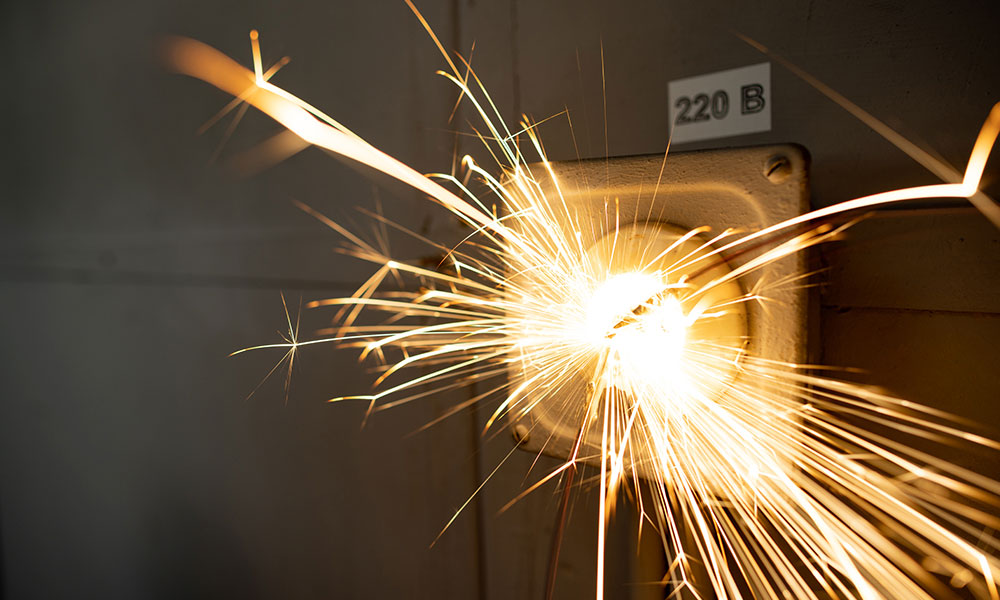We understand how important your family’s safety is to you, but have you considered their electrical safety? The amount of electricity flowing through your home is powerful enough to electrocute you. A few simple tips about cords and plugs, outlets, and circuit breakers could help you avoid injuries or fires in your home.
#1 Plugs and Cords
All of your electrical appliances have cords, and because they are used on a daily basis, we often overlook any wear and tear that could pose a safety risk to your family and home. Make it a habit to check the cords and plugs of all appliances before using them. Examine your cords for frays, cracks, and kinks. Replace the power cord before using if it is damaged; such exposures could cause a fire.
Also, make sure to use your cords correctly. No matter how much you want to tuck or hide your cords, never staple or nail them in place! To safely secure your cords, use tape or twist ties. Also, avoid running your cords through doorways or under rugs, as this could cause cord damage or overheating. Instead, use an extension cord to reach the desired location in your home safely. Although extension cords are not intended to be used permanently, they should only be used as a temporary solution. Consider rewiring if you are absolutely committed to keeping your appliance in an inaccessible location.
#2 Electrical Outlets
Once you’ve determined that your cords are secure, you must ensure that your outlets are secure as well. Every outlet’s wires should be protected by a secure plate, and if you have children, make sure your unused outlets are protected by a childproof cap. Using multiple adaptors or power strips can overload your outlets and cause fires. Instead, switch your appliances to a different outlet.
Check to see if your home has a GFCI (ground-fault circuit interrupter) outlet for outlets located near water sources, such as your bathroom and kitchen. This is a relatively new technology that is now required in all new homes built. If a GFCI comes into contact with water, it will protect your family from electrical shock.
#3 Circuit Breaker
Your circuit breaker keeps your electrical wiring from overheating and catching fire. If too much electricity flows through a particular fuse, it will “blow,” interrupting the flow of electricity. If this occurs, the fuse must be replaced; ensure that the correct size fuse is used to allow the proper flow of electricity. Your circuit breaker should always be easily accessible, and everyone in your family should know where it is and how to use it when the time comes.
Electrical appliances, outlets, and circuit breakers are constantly changing, so make sure to check them on a regular basis. Make this a habit for your entire family. Call an electrical services company if you notice any signs of electrical problems, such as dimming or flickering lights, unusual sizzling or buzzing sounds, or if your circuit breaker is constantly tripping.


